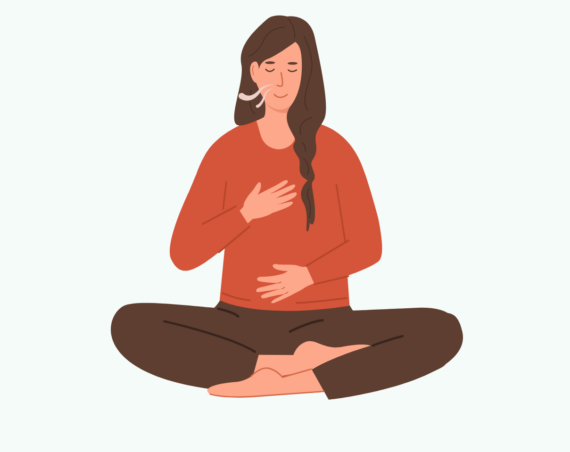
Who doesn’t want to live to be 100 years old? If you find yourself falling into the 12 categories below, you might do just that.
You’re Outgoing
According to a recent study, those who are outgoing are 50% less likely to develop dementia later in life. The research was conducted on 500 men and women ages 78 or older from the Sweden Karolinska Institute.
These participants also reported strong resilience to stress. Researchers believe this resulted in lower cortisol levels.
Other easy ways you can reduce cortisol include meditation, getting adequate rest, and exercising regularly [1].
You Enjoy Jogging
According to California scientists, middle-aged people who run for 40 minutes a day, about 5 hours a week, live longer.
Researchers studied runners and non-runners for a total of 21 years. During this time, they discovered runners have a reduced incidence of conditions such as heart disease, cancer, neurologic diseases, and infections [2].
You Eat a High-Fiber Diet
The average American consumes roughly 15 grams of fiber per day. That’s about half the current recommendation of 25-30 grams per day. A high-fiber diet can help prevent various conditions including heart disease, diabetes, and colon cancer [3].
According to a study conducted in the Netherlands, adding just 10 grams of fiber per day can reduce your risk of dying from heart disease by 17% [4].
You can increase your fiber intake by incorporating more fruits and vegetables into your diet. Foods such as whole grains, beans, and legumes, are also rich sources.
You Feel Youthful
A recent survey conducted on 500 men and women aged 70 and older reported feeling 13 years younger than they were. According to researcher Jacqui Smith, Ph.D., professor of Psychology at the University of Michigan, feeling youthful is linked to better health and longer life [5].
She believes this is due to the reduced stress and increased optimism that is linked with a better functioning immune system. Whatever the case may be, it seems keeping that inner child intact is more important than we realize.
You Keep Up with The Times
It’s no secret that many people lose sight of emerging technology as we get older. However, keeping up with new tech may help keep you young. Not only does this allow us to challenge our brains, but it also helps to keep us connected to others.
According to Sherry Snelling, senior director at Evercare, a group that sponsors an annual pole of U.S. centenarians, many of the oldest Americans send emails and participate in online dating. She believes staying connected can help you feel vital and relevant.
Menopause Came Late
Naturally experiencing menopause later may suggest a longer lifespan. Women who experience menopause after the age of 52 have a decreased risk of heart disease according to Mary Jane Minkin, MD, clinical professor of obstetrics and gynecology at Yale University School of Medicine.
You Eat a Low-Calorie Diet
According to researchers in St Louis, consuming fewer calories can help keep your heart young. About 15 years younger in fact.
According to the study published in the Journal of the American College of Cardiology, limiting your calories to 25% of the average 2000-3000 calories a day (about 1400-2000 calories a day) improved the functioning of the heart.
It’s not just about eating less though. Instead, it’s about getting more nutrition per calorie. Study subjects swapped out sugary treats and sodas for vegetables, lean meats, and whole grains [6].
You Are an Older Parent
If you were able to conceive a child naturally after the age of 44, you’re likely to live longer. According to researcher Ken R. Smith, Ph.D., professor of human development at the University of Utah, being able to have a baby at this age means the genes operating will help you live longer. This study found those who had a baby after 44 were 15% less likely to die at any age after 50 than those who had a baby under 40 [7].
Your Resting Heart Rate is 60 Beats Per Minute
A healthy heart rate is about 60 beats per minute (BPM). The average person has a heart rate between 60 to 100 BPM. The lower your heart rate is to 60, the better your health. According to Leslie Cho, MD, director of the Women’s Cardiovascular Center at the Cleveland Clinic, this is because your heart doesn’t have to work that hard. A heart that doesn’t have to work that hard will last longer.
You Sleep Quietly
Have you ever been told you snore? Snoring can be a sign of obstructive sleep apnea (OSA).
OSA can cause you to stop breathing multiple times during the night. If left untreated, it can lead to premature death. If you suspect you might be experiencing OSA, speak with your healthcare provider about getting a referral for a sleep study [8].
You Have a Slim Waistline
You don’t need to have a supermodel waist however, carrying excess weight in your belly can cut down on your life expectancy.
According to research, a waist that measures 35 inches or more in women of 40 inches or more in men can increase your risk for heart disease and diabetes.
If this is you, try adjusting your diet and adding exercise to your routine [9].
You Regularly Check Your Vitamin D Levels
Lastly, make sure to check your vitamin D levels regularly. Over 90% of Americans are not getting adequate vitamin D.
This nutrient is critical for building and maintaining our bones, reducing inflammation, and helping to control infections.
You can get vitamin D from fortified foods, fish such as salmon or tuna, beef liver, egg yolk, supplements, or directly from sunlight [10, 11].
Bottom Line
If you’re looking to live to be 100 years or older, there are some things to consider. If you have found yourself not wanting to learn new technology, growing a little heavier in the waist, and not wanting to get out and meet people, you might want to reconsider what that might mean for your lifespan.
Not everyone will meet everything on this list, but the more you do the better your health may be.


